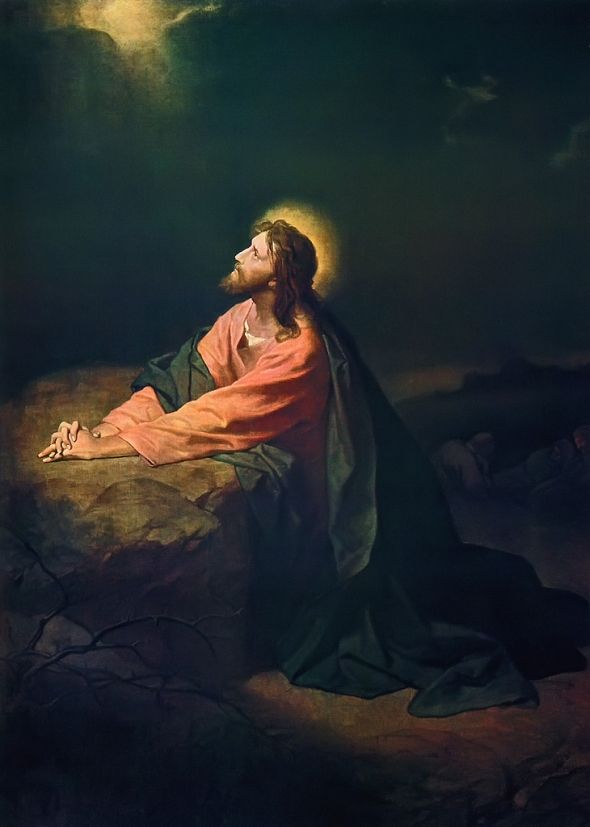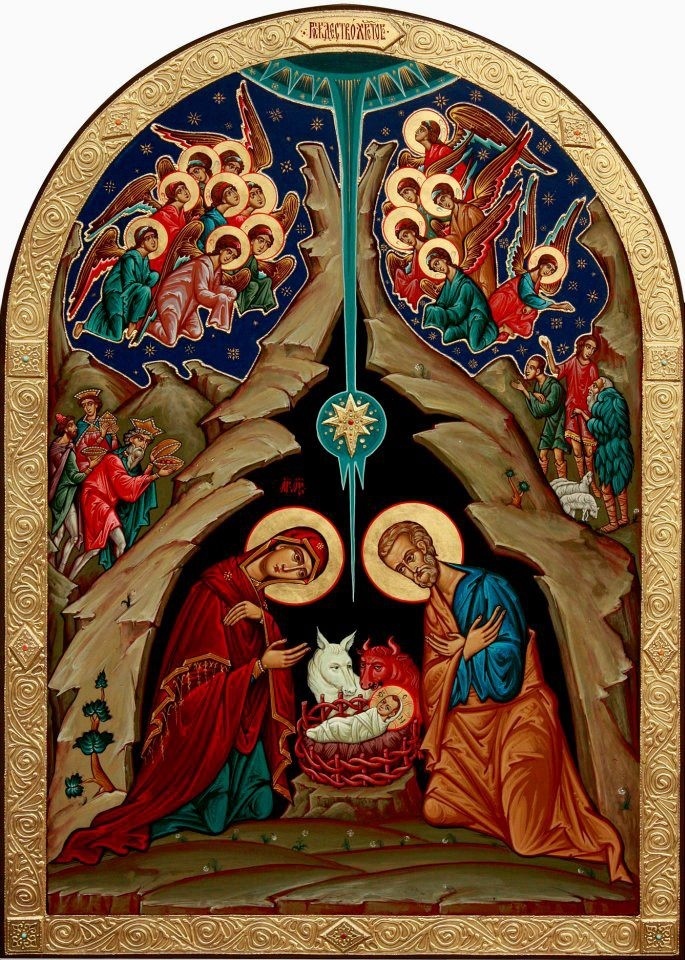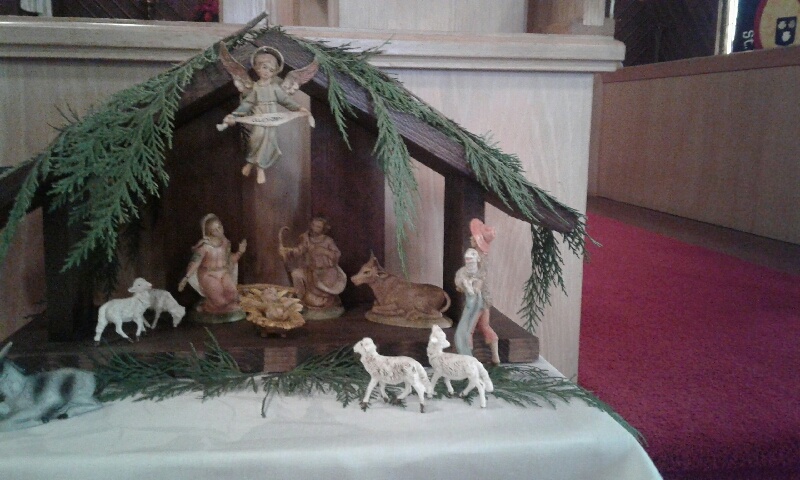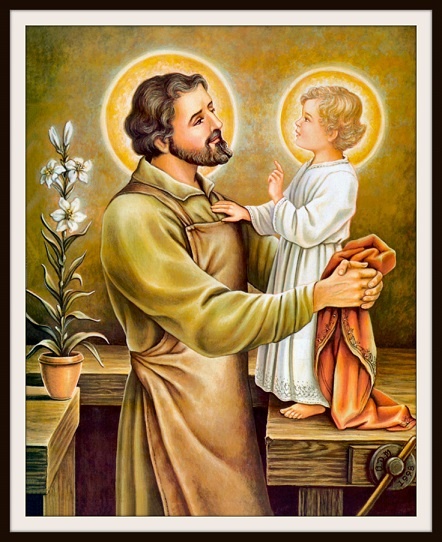
the Second Sunday after Christmas
5 January 2020
Today’s readings are:
Jeremiah 31:7-14
Psalm 84
Ephesians 1:3-6, 15-19a
Luke 2:41-52
Click here to access these readings.
When you travel abroad, you learn how many things you take for granted (and seriously, no joke, when I was writing this sermon last week, I had just written this sentence when, boom, the power went out. Things like that make you start thinking, you know?). Anyway, when you’re abroad, you realize that things you usually count on to be there – you know, things like food that looks familiar, or signs that you can read, or beds. While in Japan, I realized that there were a lot of things that I did, and always had done, that the Japanese just didn’t do. And one of these was saying “God bless you” after someone sneezed.
The Japanese, you see, don’t have a tradition of saying anything after a sneeze. And this felt really strange to me. I’d be sitting in the teacher’s office, and someone would sneeze. Then, nothing. I’d look up, worrying about whether someone would say anything, but people just, you know, kept on working. It just felt weird. And when I asked some of the Japanese teachers who could speak English, they scratched their heads and asked, “Why do you say anything at all?” And all I could say was, “I dunno. It’s just what you do”, which is pretty unhelpful.
When I became an Episcopalian, I had some similar experiences. Episcopalians, as you know, have certain ways of doing things, and we like doing things these ways, and we get uncomfortable when someone tells us to do things differently. We kneel, as able, at certain parts of the liturgy, we cross ourselves during certain prayers or parts of prayers, and we’d rather read a prayer than make one up on the spot. And we like doing these things or praying in these ways. We get, I think, quite a bit out of kneeling and crossing ourselves and reading such beautifully written prayers. We find depth in these things, and learning about them, and loving them. And, while I hope that we can learn to pray in the spirit and such, loving our tradition is a good thing. Because we see God there, and, often, we feel God so personally in the things we do.
One of the traditions we hold, and that some of us hold dear, is that around Epiphany, we bless our houses. It used to be that a priest would make his visit to people’s houses around this time, you know, to ring in the new year, to bring the love of Christmas into the home, and, often, to bless the house and the family together, where they live. I am happy to come and bless your house if you wish, but nowadays, usually what we do is take blessed chalk home and, together as a family, bless the house (I’ll talk about this in a little bit).
But, like my Japanese co-workers might ask, why do you bless houses? Or, to ask a bit further, why do we bless things at all? What are we doing when we bless things?
Now, I could answer these questions with the history of blessing homes on Epiphany. Or, I could answer it with a theological discussion on what it means to bless things, or how, why, and when Jesus blessed those people and things before him. But, instead, I want to tell you a few stories about blessing things. It’s my hope that, while you might not be able to write a nice essay about blessings, that I can instead deepen your sense of the gift that God has given us in being able to bless things.
Our chapel at seminary was called The Chapel of the Apostles. It was a weird building, but I liked it. There were great, huge windows that lined the walls, and the back of the church, behind the altar, was one big window, and it looked out into the Tennessee forest. Everything had a strange, almost art deco design to it, and this included the baptismal font. This thing was huge, maybe four feet around and a foot deep, and they’d fill it up to the brim. It was right in the middle of the foyer, so that when you walked in, there it was, full of life-giving water. Seeing it each morning, and each noon at our daily Eucharist, and in the evening if I caught a chance between studying and the family to go to evening prayer, was like having God standing there, with his hand out, welcoming me into his home.
And this font was so huge, they refilled it (literally) with a hose every few weeks. The sacristans would do this in the mornings, before anyone came in, and they’d snag the first priest who walked in the doors to bless it. This was beautiful. Some days, you’d walk into the chapel in the morning, all sleepy and tired from late nights in the library, and there, before you, would be a little ring of students and a priest, praying over the water. To either side of the door were other students, their heads bowed in prayer, and you’d step aside yourself and join them. There are few better ways to start your day than to pray when someone is blessing the waters of baptism.
Here is another story. Back before I went to seminary, Helene and I worshiped at the Church of the Resurrection in south Eugene. It was (and is) a great community of really dedicated Christians, and they do amazing work there. Helene and I did not often attend the Sunday services; we went to Mass on Saturday night, what the priest Father Brent called “Saturday evening high Mass.” Brent chanted the whole service, we used lots of incense and the sanctus bells. It was really beautiful.
But I think one of the best parts of the service was afterwards. Helene and I were on the altar guild, so we often cleaned up. Father Brent insisted on using loafs of bread, and that’s cool, though there was often a lot left over. And while Helene and I love bread, it’s hard to eat a whole half-loaf reverently. We often asked if anyone could help us, but when word got around to the kids that there was more Eucharist, they’d charge into the sacristy (which was tiny) and all call out for more bread. Nor was it just any bread: it was blessed bread, consecrated to be the Body of our Lord and Savior Jesus Christ. And here was this trampling rush of kids and a dozen or so outstretched hands, all saying, “Can I have some more! More! Please, let me have some more!”
Now, I’m sure that those kids were thinking quite a bit about their stomachs and not their spirits. Saturday evening high Mass was just before dinner, so they were probably hungry. But I’ve seen hungry kids rushing to the dinner table, and while there is often joy, it was not the same sort of joy as those kids standing at the door of the sacristy. They knew that something was different about that bread. They couldn’t explain it (who could?), but there was something different about it. Perhaps it was the ritual of the Eucharistic prayer that gave them the hint. Perhaps it was the reverence that people brought to the altar rails and that they, themselves, also experienced. And perhaps it was the love they felt when they took those little bits of bread and ate them, together, with the rest of the church, the rest of their church family. Perhaps that joy came a bit from knowing God in that bread and knowing that the love of God filled them just like bread filled their tummies.
I could tell you many more stories about blessings. I could tell you stories about being at the hospital, here in Coquille or down in Sewanee or during my chaplaincy in Florida. I could tell you about personal blessings, like spring mornings as a kid in New Jersey, or the first time I saw Saturn through a telescope and how much awe I felt at God’s world, or the Sacrament of Confession, and when Jesus took all my sins on his back to carry them for me. I could tell you many more stories, and, I think, so could you.
During the liturgy, it is the priest’s responsibility and privilege (if the bishop isn’t here) to bless the people. We do this after the post-communion prayer, and it often is, “and the blessing of God Almighty, Father Son and Holy Spirit, be with you all and remain with you, always.” But just because I’m the priest and so I get to bless you all doesn’t mean that you yourselves, as Christians, can’t bless stuff. You can. And your blessing doesn’t count less because you aren’t wearing a collar. It counts just the same amount.
I can’t remember who said this, it was one of the Church fathers, I believe, but: we should be blessing things all the time. We should be speaking the Name and Love and Hope of God over all things we encounter. For what is a blessing other than allowing the Life of God, the breath of the Holy Spirit and the loving arms of Jesus Christ, to reach further into the world? Bless all things to the glory of the Lord, and be a blessing to others, so that the world may be brought ever more fully into the light of God in Jesus Christ.




